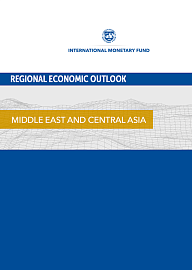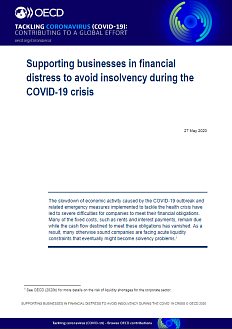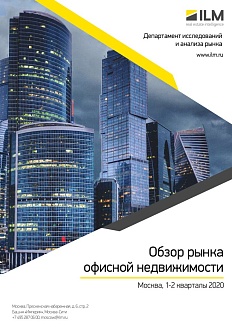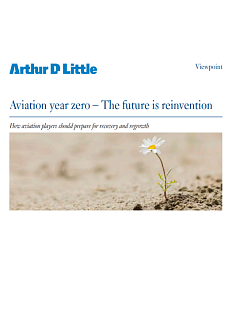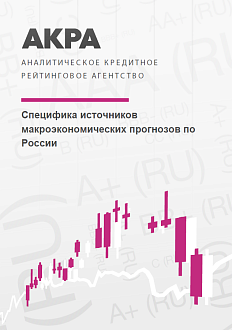International Monetary Fund (IMF) experts present a study on the impact of the global pandemic COVID-19 on the Middle East and Central Asia (MECAD) region. In their opinion, the MECAD region responded to the coronavirus outbreak with prompt and strict measures that have saved many lives. As the pandemic fades away, the countries need to facilitate the recovery, reallocation of workers and resources in line with needs, while renewing gradual fiscal adjustment and restoring reserves for economic policy.
Roscongress Foundation analysts highlighted the main theses of this research, accompanying each of them with suitable fragments of video broadcasts of panel discussions held as part of business programs of the key events hosted by the Foundation.
Declining mobility and economic activity in general, as well as reduced trade and capital flows are the negative consequences of the COVID-19 pandemic.
The necessary measures introduced to contain the spread of the pandemic had a strong impact on economic activity. According to Google Mobility Trends measurements, mobility in the MECAD region in relation to places of work has decreased by the same amount as in Europe and the Western hemisphere, where cases are much more common. There was also a marked decline in procurement managers’ indices, which fell sharply in several countries in April, although there were some preliminary signs of recovery in May.
In March, there was a sudden reversal of capital flows from emerging market countries as a whole, estimated at about USD 6-8 billion for portfolio investments in the region under consideration. The actual amount of outflow may be higher, considering that official data are not yet available.
Key operational responses to the current crisis include support to health systems, vulnerable households and economic sectors, as well as liquidity provision.
Prompt policy responses by official authorities focused on allocating resources for health care, supporting vulnerable households and the most affected sectors of the economy, and providing liquidity.
Social protection measures in the region, which became the main instrument for increasing non-health spending, included cash and in-kind transfer programs (applied in more than two thirds of the countries).
After a significant reduction in policy interest rates in March and April, most countries maintained a liberal monetary policy exchange rate, while exchange rate flexibility helped to amortise some of the shocks in some countries.
The immediate prospects for economic development are marked by a decline in real GDP and a high level of uncertainty in the situation as a whole.
Taking into account the internal and external negative impacts and despite the adopted policy measures, in 2020 the real GDP in the region of the MECAD is forecasted to fall by 4.7%, which is 2 percentage points lower than it was forecasted in the April issue of the Regional Economic Outlook (REA) 2020 in accordance with the revision of the global growth forecasts.
In the coming period, economic prospects and the balance of risks are subject to increased uncertainty about the dynamics and persistence of the pandemic. The decline may be less profound than predicted if, for example, a vaccine against the virus becomes available faster than expected, or if national authorities find a way to maintain activity.
Video:
The current situation requires further stimulus measures aimed at developing healthcare systems, maintaining liquidity and providing financial assistance.
Public administration bodies need to continue to work to ensure that health systems are adequately resourced, strong and resilient, no matter where the country is in the pandemic. As the countries of the region continue to regain their openness, the authorities also need to pay attention to promoting economic recovery, which will require the active abolition of some emergency support measures and the redistribution of labor in order to reduce employment with high intensity of personal contacts.
In countries where isolation measures are still in place, and where openness is being carefully restored, liquidity provision will remain a critical challenge in order to maintain market functioning and prevent funding difficulties.
Multilateral, regional and bilateral assistance through a system of global financial protection can help mitigate financing shocks.
We also offer you to get acquainted with other materials placed in special sections of the Roscongress Information and Analytical System, COVID-19, StayHomeEconomy, Economic Progress, Healthсare, Medicine and Pandemics, dedicated to possible ways of economic stabilisation in the conditions of pandemic, as well as to the development of health care as a strategic goal to ensure economic and national security of the country.


